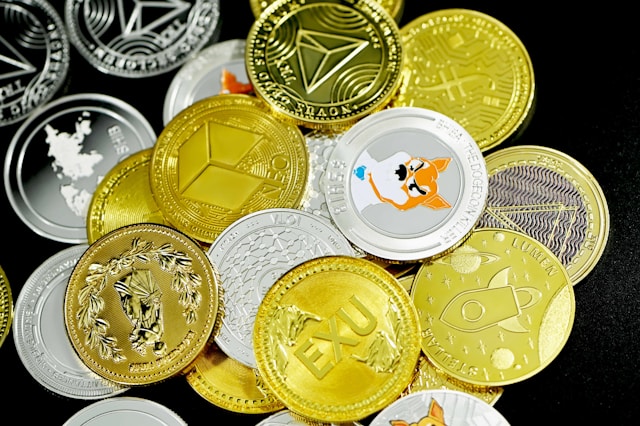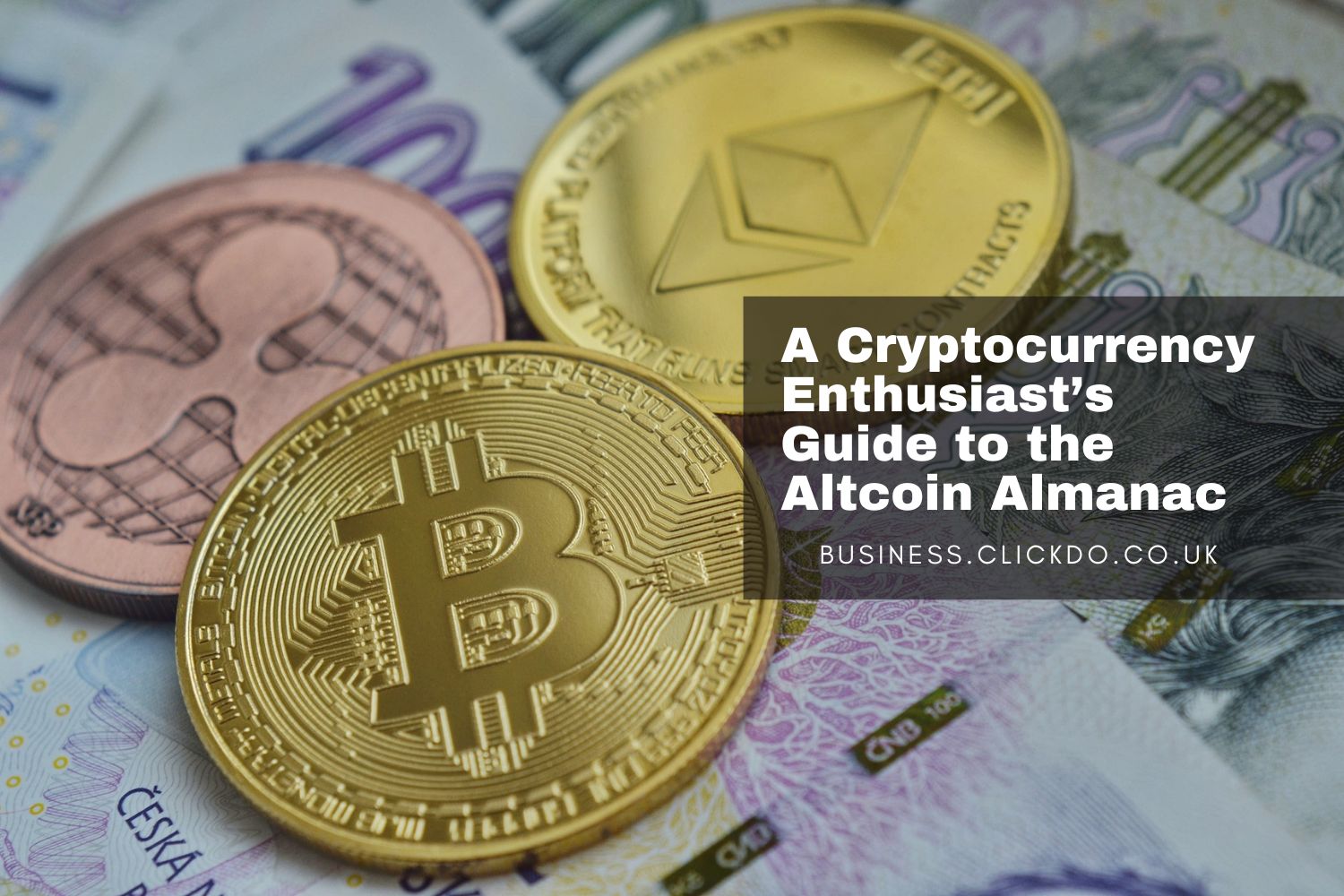Table of Contents
The world of cryptocurrencies has come a long way since the inception of Bitcoin in 2009.
As Bitcoin gained prominence, it paved the way for a multitude of alternative cryptocurrencies, often referred to as “altcoins.” In this comprehensive guide, we will delve deep into the realm of altcoins, exploring their significance, characteristics, popular options, investment strategies, technological innovations, and their role in the evolving landscape of decentralized finance (DeFi).
Deepening your understanding of these concepts and their consequential effects can be facilitated by resources like https://quantum-zenx.com/, an Investment Education Firm focused on helping individuals grasp the intricacies of these cutting-edge technologies.
Understanding Altcoins
Altcoins, short for alternative coins, are any cryptocurrencies other than Bitcoin. While Bitcoin was the pioneer, altcoins have emerged to offer diverse features and functionalities. These digital assets share the same underlying technology—blockchain—but often have unique characteristics and use cases.
Historical Context: Early Altcoins
In the early days of cryptocurrencies, altcoins played a vital role in experimenting with new ideas and technologies. Notable examples include Litecoin (LTC), created by Charlie Lee as the “silver” to Bitcoin’s “gold,” and Namecoin (NMC), which aimed to provide decentralized domain name registration. These altcoins helped shape the crypto landscape and demonstrated that blockchain technology could be applied in various ways.

Categories of Altcoins
Altcoins can be categorized into three main types:
Utility Tokens: These tokens are primarily used to access specific features or services within a blockchain ecosystem. Ethereum’s Ether (ETH) is a prime example, serving as both a cryptocurrency and fuel for executing smart contracts and decentralized applications (DApps).
Security Tokens: Security tokens represent ownership of real-world assets, such as stocks, bonds, or real estate, on a blockchain. They aim to bridge the gap between traditional finance and the crypto space, providing transparency and security in asset ownership.
Stablecoins: Designed to minimize the volatility associated with cryptocurrencies, stablecoins like Tether (USDT) and USD Coin (USDC) are pegged to stable assets like the US dollar. They are often used for trading, as a store of value, or in DeFi protocols.
Popular Altcoins: A Deep Dive
Ethereum (ETH)
Ethereum, launched by Vitalik Buterin in 2015, revolutionized the cryptocurrency space with its introduction of smart contracts. These self-executing contracts enable programmable and decentralized applications to run on the Ethereum blockchain. Ethereum 2.0, an upgrade aimed at improving scalability and energy efficiency, is currently in progress.
Ripple (XRP)
Ripple focuses on facilitating fast and low-cost cross-border payments through its XRP token. While it has gained traction with financial institutions, it has also faced legal challenges from the Securities and Exchange Commission (SEC) over its XRP sales. The outcome of this legal battle will significantly impact Ripple’s future.
Litecoin (LTC)
Litecoin, created by Charlie Lee in 2011, often positions itself as the “digital silver” to Bitcoin’s “digital gold.” It implemented Segregated Witness (SegWit) and integrated the Lightning Network, enhancing its scalability and transaction speed. Litecoin continues to play a role in the cryptocurrency ecosystem.
Investment Strategies in Altcoins
Before diving into the altcoin market, it’s crucial to assess the risks and potential rewards. Diversification, spreading investments across various altcoins, can help mitigate risk. However, concentrating on a select few with strong fundamentals can also yield substantial gains. Consider your investment horizon—long-term or short-term—and align your strategy accordingly.

Altcoin Technology and Innovation
Scalability Solutions
One of the major challenges facing blockchain networks is scalability. Altcoins like Cardano (ADA) and Polkadot (DOT) are exploring innovative solutions to enhance scalability, aiming to handle a higher volume of transactions per second and reduce network congestion.
Privacy Coins
Privacy coins like Monero (XMR) and Zcash (ZEC) prioritize anonymity and data protection. They utilize advanced cryptographic techniques to shield transaction details, making them popular choices for users who value privacy and security.
Interoperability and Cross-Chain Solutions
Interoperability is essential for the seamless functioning of blockchain networks. Altcoins such as Chainlink (LINK) and Polkadot are working on connecting different blockchains to enable the exchange of assets and data across multiple platforms.
Altcoins and the DeFi Revolution
Decentralized Finance (DeFi)
The rise of DeFi has significantly impacted the altcoin market. DeFi protocols utilize smart contracts to offer various financial services, such as lending, borrowing, and yield farming. Altcoins like Aave (AAVE) and Compound (COMP) are integral to the DeFi ecosystem.

Navigating Altcoin Markets
Due Diligence
Thorough research is essential before investing in any altcoin. Evaluate the project’s team, technology, use case, and community support. Be wary of projects with limited transparency or dubious intentions.
Recognizing Red Flags
The cryptocurrency market is not without risks. Beware of pump-and-dump schemes, fraudulent ICOs, and projects promising unrealistic returns. Always exercise caution and skepticism.
Conclusion
As the cryptocurrency landscape continues to evolve, altcoins remain a vital part of the ecosystem, offering innovation, diversification, and unique use cases. Whether you’re an investor or a technology enthusiast, understanding altcoins is essential for navigating the exciting and ever-changing world of cryptocurrencies. Keep learning, stay informed, and participate responsibly in this transformative financial revolution.
Author Profile
- Blogger and Educator by Passion | Senior Online Media & PR Strategist at ClickDo Ltd. | Contributor to many Education, Business & Lifestyle Blogs in the United Kingdom & Germany | Summer Course Student at the London School of Journalism and Course Instructor at the SeekaHost University.
Latest entries
 BusinessFebruary 1, 2026Why Modern Warehouse Management is the Secret to UK Retail Growth
BusinessFebruary 1, 2026Why Modern Warehouse Management is the Secret to UK Retail Growth BusinessDecember 2, 2025How to Build an Effective Progression Plan in Your Company
BusinessDecember 2, 2025How to Build an Effective Progression Plan in Your Company BusinessOctober 24, 2025Legionella Risk Assessment: 5 Things Every Entrepreneur Needs to Know
BusinessOctober 24, 2025Legionella Risk Assessment: 5 Things Every Entrepreneur Needs to Know EmploymentSeptember 2, 2025Why Motorbike Accident Staff Claims are a Growing Business Risk
EmploymentSeptember 2, 2025Why Motorbike Accident Staff Claims are a Growing Business Risk





